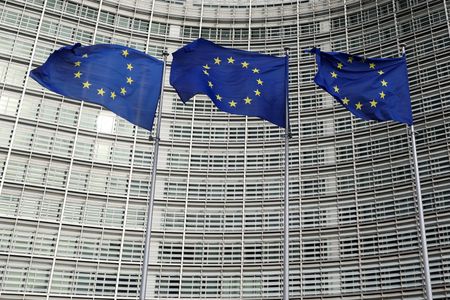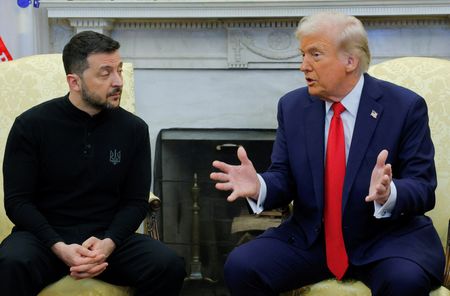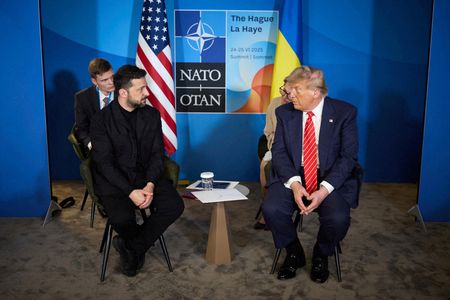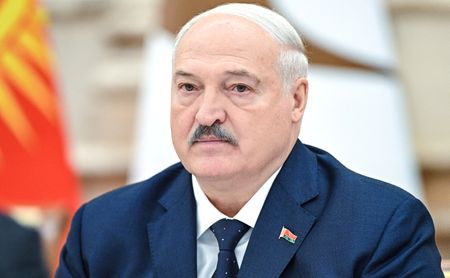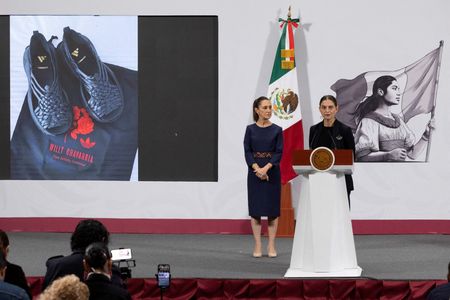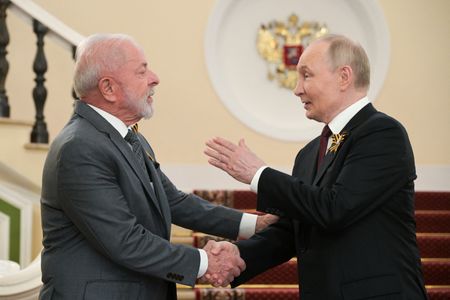By Balazs Koranyi
FRANKFURT (Reuters) -The euro zone economy grew faster than expected in the first quarter while inflation declined, indicating that the bloc started the year on an upbeat note before successive blows from the U.S. trade war, a surging euro and deteriorating sentiment.
The world’s second-largest economic bloc has barely grown over the past several years as businesses held back investment and households tried to rebuild wealth lost due to high inflation. That put Europe on the back foot even before the latest escalation in trade tensions under U.S. President Donald Trump, who announced sweeping import tariffs on April 2.
This year had been seen as the beginning of a long recovery and early figures have shown promise. But since Trump’s “Liberation Day”, policymakers have warned that permanent damage has already been done to the global economy, even if there is an eventual resolution to the tensions.
The 20 nations sharing the euro currency saw their economy expand by 0.4% in the first quarter, beating expectations for 0.2%, driven by quick growth in Spain, Eurostat data showed.
“Well, that was a relief,” HSBC economic Fabio Balboni said. “Private consumption is now — finally! — rising broadly in line with real wages. In addition, investment is also showing signs of life, likely on the back of faster Next Generation EU implementation and lower borrowing costs for firms.”
Although Europe’s promising growth is likely to be temporary, the bloc well outperformed the U.S., which contracted in Q1, weighed down by a deluge of goods imported by businesses eager to avoid higher costs.
The underlying euro zone trend was somewhat weaker than the headline figures suggest, however, as data was distorted by a 3.2% expansion in Ireland, fuelled largely by activity among big foreign companies based there for tax reasons.
Germany, Europe’s largest economy, grew by just 0.2% while France expanded by 0.1% and Italy by 0.3%, suggesting that excluding Ireland, the headline figure would be more modest.
Inflation also appears to have slowed, according to national data.
Price growth in Germany dipped to 2.1% from 2.2%, coming within striking distance of the ECB’s 2% target, while in Italy it held steady at 2.1%.
The figures are not game-changers but confirm the ECB’s message that inflation is largely defeated and figures will now oscillate around target for the remainder of the year.
“For the ECB, today’s growth and inflation reports clearly pave the way for some additional, though very gradual and measured, rate cuts, without giving any reasons for panic,” ING economist Carsten Brzeski said.
Interest rate cuts are coming mostly because the outlook has darkened significantly.
Some of Europe’s largest firms – including Volkswagen and Mercedes-Benz on Wednesday – have issued warnings in recent days that tariffs will weigh on profits, hold back sales and may curtail investment.
Meanwhile, a key sentiment indicator published on Tuesday showed a major dip, erasing any hope of a recovery and putting the indicator on a downward trend after it flatlined for most of 2024.
The ECB has already said that on top of the trade war, the financial market turbulence set off by U.S. policies and the general deterioration in sentiment will all dampen growth.
But the bloc was seen expanding by less than 1% even before Trump’s tariff bombshell, suggesting that any other major damage would put it close to a recession.
Most economists and policymakers say that the U.S. is bound to take a bigger hit than other economies, however, creating an incentive for the Trump administration to scale back its tariffs, some of which have already been suspended.
Increased spending by the new German government on defence and infrastructure could help insulate the euro zone, but that will take time to legislate and implement, suggesting little to no fiscal boost is likely this year and Europe will also suffer.
(Reporting by Balazs Koranyi; Editing by Hugh Lawson and Catherine Evans)

